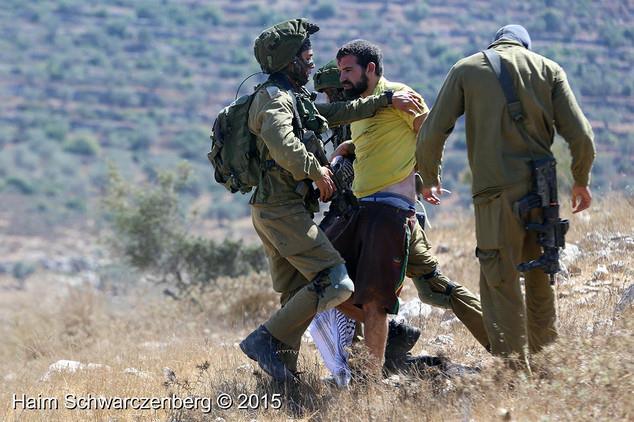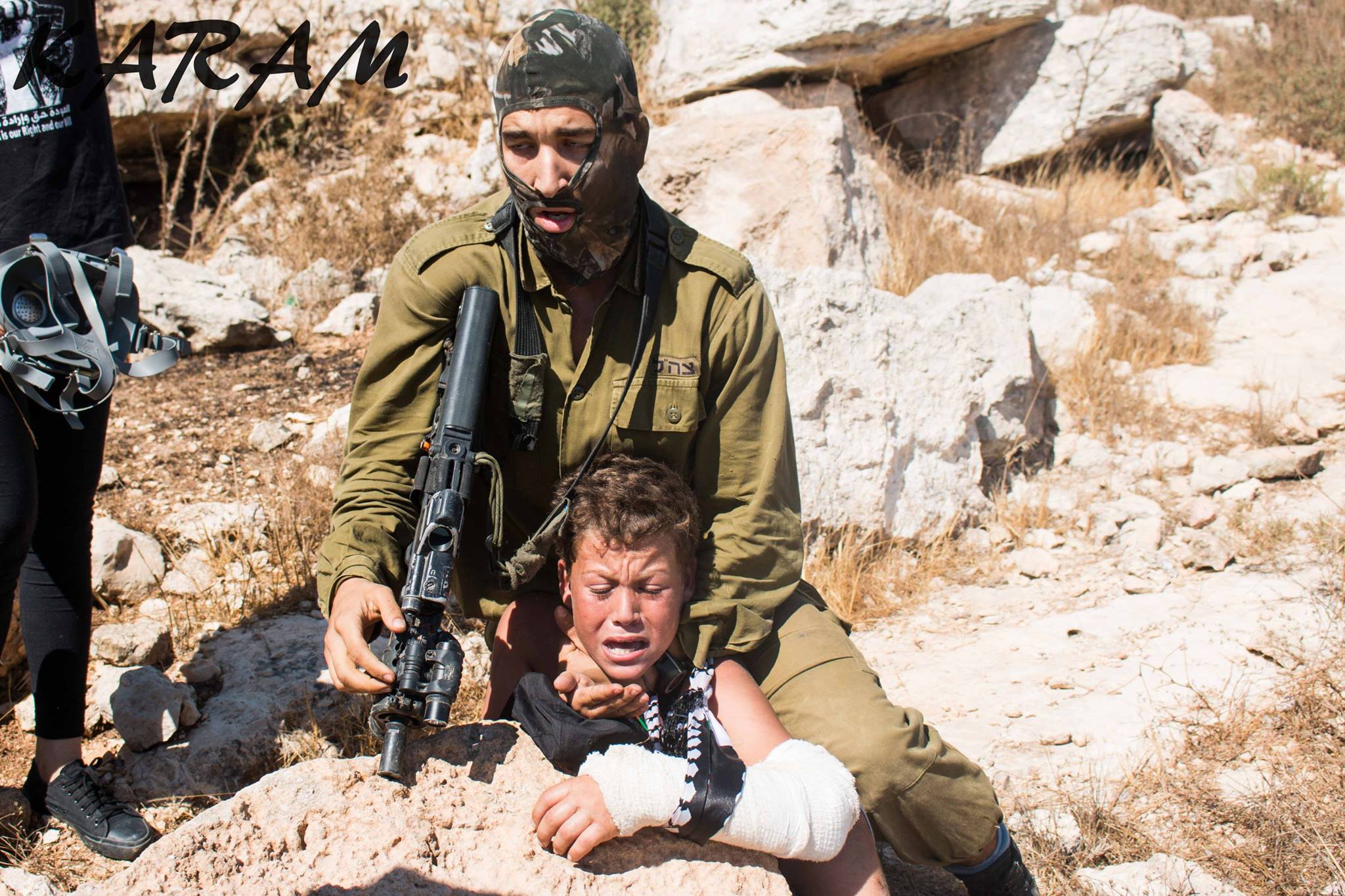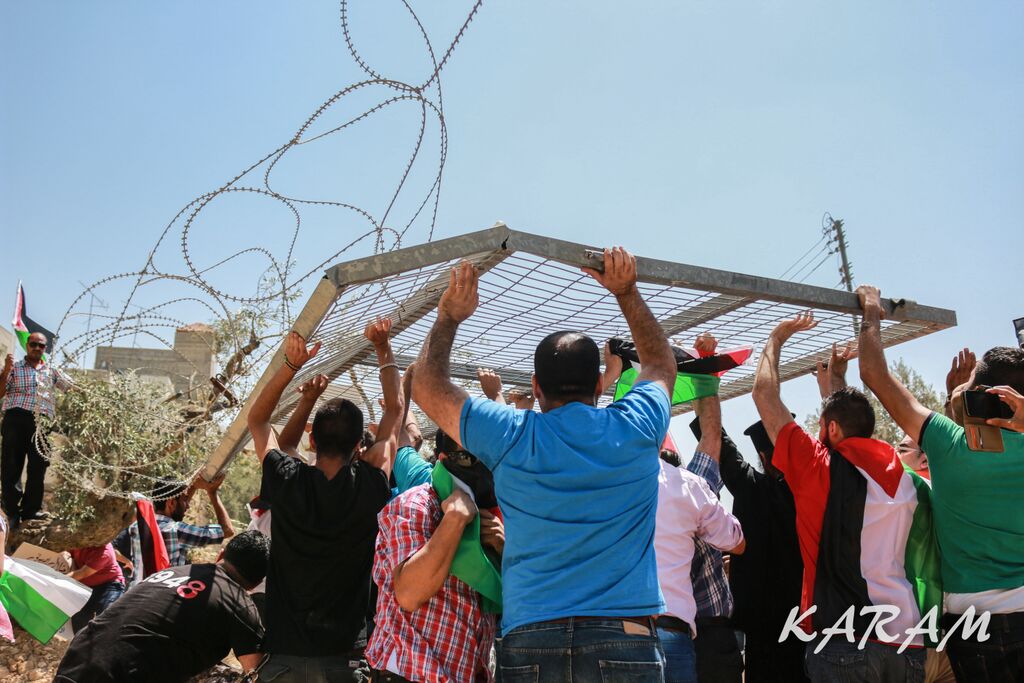Category: Press Releases
-
Italian activist arrested and beaten up in occupied Palestine
31st August | International Solidarity Movement, al-Khalil Team | Hebron, occupied Palestine Update 31-08-2015 20:00: Vittorio Feras court this morning again did not take any final decisions. It was ruled to release him on a 3000 shekel bill under the condition that he stay in Jerusalem and not leave the country until yet another court date on…
-
Two people violently arrested at peaceful demonstration in Nabi Saleh
28th August | International Solidarity Movement, al-Khalil | Hebron, occupied Palestine UPDATE: A court just ruled to keep Vittorio Fera in prison until an actuall decision is taken on Monday. He was violently thrown to the ground and arrested by Israeli soldiers in Nabi Saleh yesterday. He is being accused of throwing stones and attacking…
-
Hundreds protest against Israeli seperation wall in Bait Jala
Sunday morning around 300 Palestinians and Internationals demonstrated side by side to block the uprooting of olive yards related to the construction of the apartheid-wall. The protesters where all non-violent and all stood up for the Palestinians rights and for a free Palestine. Protesters successfully removed the illegal metal fence, which was put up by the…



